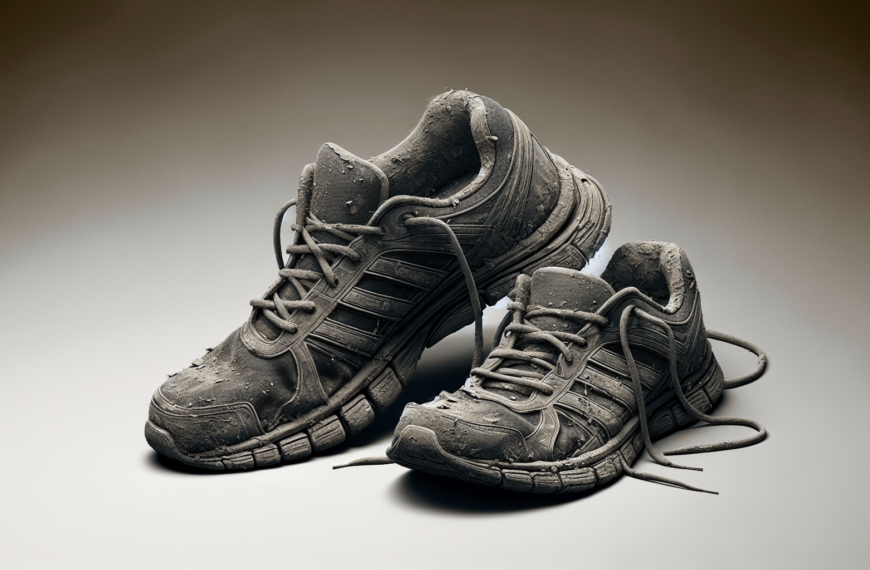The article “8 Practical Tips for Preventing Dehydration During Pregnancy” provides valuable insights and tips for expectant mothers on the significance of hydration during pregnancy and how to stay properly hydrated. It emphasizes the importance of water for maintaining a healthy pregnancy and preventing complications such as low amniotic fluid levels. The recommended daily water intake for pregnant women is discussed, as well as common signs of dehydration to watch out for. The article also offers practical tips for staying hydrated during pregnancy, including starting the day with a glass of water, carrying a water bottle, setting reminders, infusing water with fruits, and incorporating water-rich foods into the diet. Furthermore, it addresses the issue of morning sickness and provides tips for staying hydrated even when experiencing nausea. The article concludes by discussing suitable beverage options for pregnant women and emphasizing the importance of consulting with healthcare providers for personalized advice.
Why Is Hydration Important During Pregnancy?
Hydration plays a pivotal role in maintaining a healthy pregnancy. The human body undergoes numerous changes during this time, including an increase in blood volume and the formation of amniotic fluid. Water is essential for the proper functioning of these processes. Staying hydrated may help prevent urinary tract infections and pregnancy constipation and ensure a sufficient supply of nutrients to the baby. Dehydration during pregnancy may lead to complications such as low amniotic fluid levels, which can result in further complications like preterm birth. Therefore, understanding the significance of hydration in pregnancy is crucial for the well-being of both mother and baby.
Read more about the latest articles
How Much Water Should a Pregnant Woman Drink?
The recommended water intake during pregnancy varies based on factors like age, weight, activity level, and climate. However, a general guideline from the American College of Obstetricians and Gynecologists suggests that pregnant women should aim for about 8-12 cups (64-96 ounces) of water daily. It’s important to note that individual hydration needs may differ, and additional water may be required in certain circumstances, such as physical activity or exposure to hot weather. Consult with your healthcare provider to determine your personal hydration needs.
Signs of Dehydration in Pregnancy
Recognizing signs of dehydration during pregnancy is crucial for addressing the issue promptly. Common signs include:
- Dark yellow urine: The most well-known sign of dehydration is darker-colored urine. This can be an indicator of concentrated waste products, suggesting dehydration.
- Infrequent urination: Reduced frequency of urination may signal dehydration. Adequate hydration typically results in regular and clear urination. An adequately hydrated adult usually urinates six to seven times per day.
- Dizziness or lightheadedness: Dehydration can lead to a drop in blood pressure, causing feelings of dizziness or lightheadedness.
- Rapid heartbeat: Insufficient fluid levels may contribute to an increased heart rate as the body works harder to circulate blood.
- Dry or sticky mouth: Dehydration can manifest as a sticky feeling or dry mouth in pregnancy, indicating insufficient saliva production.
- Headache: Dehydration may contribute to headaches or migraines. Pregnant women should be especially mindful of this symptom, as headaches that arise during the third trimester may also be a sign of preeclampsia.
- Fatigue: Insufficient hydration can lead to feelings of tiredness and fatigue, affecting overall energy levels.
While you’re pregnant, it’s essential to monitor these signs closely and prioritize regular fluid intake to prevent dehydration. If any of these symptoms persist or worsen, seek guidance from a healthcare professional.
How To Stay Hydrated During Pregnancy
Ensuring adequate hydration during pregnancy requires conscious effort, but there are some simple ways to do it. Here are five practical tips for pregnant women to stay hydrated:
1. Start Your Day Off Right
Drink a glass of water first thing in the morning (yes, before your cup of joe). One of my favorite mottos is “Water First!” Not only does it give you a head start on meeting your hydration goal, but it may also help decrease fatigue.
2. Carry a Water Bottle
As simple as it may seem, it’s not always at the top of our minds. However, keeping a reusable water bottle with you throughout the day makes it convenient to sip water regularly, allowing you to refill as needed. Here are some pro tips for this:
- Invest in a fun or fancy water bottle that’s visually appealing.
- Ensure it fits in your bag, purse, backpack, car cup holders, etc., so it’s convenient to carry around.
- Opt for one with marked measurements to help with motivation and tracking your intake throughout the day.
3. Set Reminders
With the hustle and bustle of daily life, even if you have a water bottle on hand, it’s easy to forget to actually drink. To help you remember, set regular reminders on your phone or use apps designed to track water intake throughout the day.
4. Infuse Your Water
If plain water doesn’t appeal to you, try infusing it with slices of fruits like lemon, cucumber, or berries for added flavor. Some of my favorite combos are:
- Raspberry lemon
- Cucumber mint
- Blackberry sage
- Rosemary lemon
- Lemon ginger and turmeric (this was my go-to for those early first trimester days when the nausea hits!)
5. Eat Water-Rich Foods
Incorporate water-rich foods (such as watermelon, cucumber, oranges) into your diet. These contribute to both hydration and nutrition.
How Can I Stay Hydrated If I Have Morning Sickness?
Morning sickness can pose a challenge to staying hydrated, as nausea and vomiting may deter fluid intake. But prioritizing hydration is crucial, even in the presence of morning sickness. Women who experience morning sickness or hyperemesis gravidarum are at an increased risk for dehydration during pregnancy. Here are three tips for staying hydrated when that first-trimester morning sickness settles in:
1. Sip Throughout the Day
Instead of drinking large amounts at once, sip water throughout the day to minimize the impact on your stomach. Our bodies tightly regulate fluid status. (This is where having a water bottle on hand can help!)
2. Try Ginger Tea
Ginger has anti-nausea properties. Consider sipping ginger tea (or a non-alcoholic ginger beer) to alleviate morning sickness while staying hydrated.
3. Opt for Electrolyte Drinks
In cases of severe morning sickness leading to dehydration, drinks with added electrolytes can help replenish lost fluids and minerals. This is where you might be wondering whether you can drink Gatorade while you’re pregnant. In short, yes, it is safe to drink Gatorade during pregnancy, according to a group of board-certified OBGYNs. However, Gatorade and other sports drinks tend to have a high amount of added sugar, so consume them in moderation while you’re pregnant to limit added sugar intake. Liquid IV and Needed Hydration Support are my go-to electrolyte replenishers for pregnancy. These no- or low-sugar electrolyte supplements help replenish your body’s electrolytes without the added sugar, food dyes, or artificial sweeteners.
Read more about the latest articles
What You Can Drink While Pregnant
During pregnancy, it’s essential to make mindful choices about the beverages you consume. While water is the best choice for hydration, there are other suitable beverage options for pregnant women. These drinks are generally considered safe and beneficial for pregnant women to keep you hydrated:
- Water: The ultimate hydrator! Drinking adequate water is crucial during pregnancy to support increased blood volume, amniotic fluid, and overall well-being.
- Sparkling water: Also known as carbonated or seltzer water, sparkling water is a refreshing and enjoyable beverage choice during pregnancy. Like still water, sparkling water can contribute to your overall hydration. The effervescence may help alleviate nausea. While it’s generally safe, you should choose varieties without added sugars and sweeteners.
- Herbal teas (non-caffeinated): Opt for herbal teas such as peppermint, chamomile, or ginger tea. These are caffeine-free and can provide soothing effects, particularly for issues like nausea.
- Milk: This is a good source of calcium, vitamin D, and protein. Choose full-fat milk to help meet your increased caloric needs and hydration while supporting yours and your baby’s bone health.
- Coconut water: Naturally rich in electrolytes, coconut water is a refreshing choice that can help maintain hydration levels. Ensure it’s pasteurized (to decrease the risk of bacterial growth) and doesn’t contain added sugars.
- Fruit juices (in moderation): Choose 100% fruit juices without added sugars or artificial ingredients. While juices can contribute to hydration, ensure you consume them in moderation due to their natural sugar content.
- Bone broth: Rich in electrolytes and a good source of protein, bone broth can be a nutritious and hydrating option during pregnancy.
It’s always advisable to consult your healthcare provider for personalized recommendations based on your health and pregnancy needs before making any dietary changes.
The Bottom Line
Ensuring adequate hydration during pregnancy is essential for the health and well-being of both mother and baby. Expectant mothers can confidently navigate this aspect of pregnancy by understanding the importance of hydration, recognizing signs of dehydration in pregnancy, and implementing practical tips. Whether you want to stick with water or drink Gatorade or Liquid IV while pregnant, remember to consult your healthcare provider for personalized advice based on your unique pregnancy circumstances. Stay hydrated and enjoy a healthy pregnancy journey!














